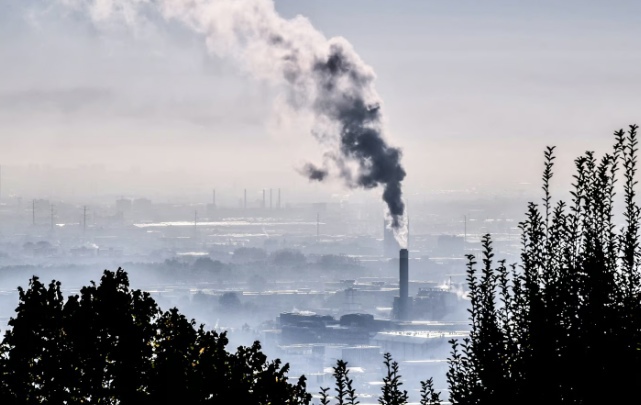Europe is the world’s fastest growing continent and climate risks threaten its energy and food security, ecosystems, infrastructure, water resources, financial stability and human health.
According to an assessment published today by the European Environment Agency (EEA), many of these risks have already reached critical levels and could become catastrophic without urgent and decisive action.
The extreme heat, drought, wildfires and floods that have been occurring on the planet in recent years will worsen in Europe even under an optimistic global warming scenario and will affect living conditions across the continent. The EEA has published the first ever European Climate Risk Assessment (EUCRA) to help prioritise climate change adaptation policies and climate-sensitive sectors.
European adaptation policies and measures are not keeping pace with rapidly increasing risks. In many cases, gradual adaptation will not be enough, and as many climate resilience measures take a long time, urgent action may be required even for risks that are not yet critical.
Some regions of Europe are hotspots for multiple climate risks. Southern Europe is particularly exposed to the risk of wildfires and the impact of heat and water scarcity on agricultural production, outdoor work and human health. Flooding, erosion and saltwater intrusion threaten low-lying coastal areas of Europe, including many densely populated cities. Leena Ylä-Mononen, EEA Executive Director, said:
Our new analysis shows that Europe faces urgent climate risks that are growing faster than our societal preparedness. To ensure the resilience of our societies, European and national policymakers must act now to reduce climate risks both by rapid emission cuts and by strong adaptation policies and actions.
The assessment identifies 36 major climate risks to Europe in five broad groups: ecosystems, economy, finance food, health and infrastructure. More than half of the major climate risks identified in the report require stronger action now, and eight of them are particularly urgent, mainly to conserve ecosystems, protect people from heatwaves, protect populations and infrastructure from floods and wildfires, and ensure the viability of European solidarity mechanisms such as the EU Solidarity Fund.
- Economy and finance: Europe’s economy and financial system face many climate risks. For example, extreme climate events can raise insurance premiums, jeopardise assets and mortgages, and increase public spending and borrowing costs. The viability of the EU Solidarity Fund is already under serious threat from costly floods and forest fires in recent years. Worsening climate impacts could also widen gaps in private insurance and make low-income families more vulnerable.
- Ecosystems: Almost all risks in the ecosystem cluster require urgent or enhanced action, with risks to marine and coastal ecosystems assessed as particularly severe. The EEA report reminds us that ecosystems provide many services to people and therefore these risks have a high potential to cascade to other areas including food, health, infrastructure and the economy.
- Food: Heat and drought risks to crop production have already reached critical levels in Southern Europe, but Central European countries are also at risk. Especially prolonged droughts affecting large areas pose a significant threat to crop production, food security and drinking water supplies. As one solution, even a partial shift from animal-based proteins to sustainably grown plant-based proteins would reduce agricultural water consumption and dependence on imported feed.
- Health: Heat is the most serious and urgent climate risk factor for human health. Certain populations are most at risk, such as outdoor workers in extreme heat, the elderly, and people living in poorly built homes, in areas with a strong urban heat island effect, or with inadequate access to cooling. Many levers for reducing climate-related health risks lie outside of traditional health policies such as urban planning, building standards and labour laws.
- Infrastructure: More frequent and extreme weather events increase risks to European built environment and critical services including energy, water and transport. While coastal flood risks in Europe are being managed relatively well, sea level rise and changes in storm patterns could have devastating effects on people, infrastructure and economic activity. In Southern Europe, heatwaves and droughts pose significant risks to energy production, transmission and consumption. Residential buildings must also be adapted to increasing heat.
The EU and its Member States have made significant progress in understanding and preparing for the climate risks they face. National climate risk assessments are increasingly being used to develop adaptation policies. However, societal preparedness is insufficient, as policy implementation lags behind the rapid increase in risk levels.
Most of the major climate risks identified in the report are considered to be “co-owned” by the EU, its Member States or other governmental levels. The EEA assessment states that to address and reduce climate risks in Europe, the EU and its Member States must work together and involve regional and local levels when urgent and coordinated action is required.
There are still many knowledge gaps in relation to the main climate risks identified in the EEA report. The EU can play a key role in improving understanding of climate risks and responsibilities and how to address them through legislation, appropriate governance structures, monitoring, financing and technical support, the report says. Such new knowledge will also be an important input to the subsequent European Climate Risk Assessment.
The EEA EUCRA report builds on and complements the existing knowledge base on climate impacts and climate risks for Europe, including recent reports from the Intergovernmental Panel on Climate Change (IPCC), the Copernicus Climate Change Service (C3S) and the European Commission’s Joint Research Centre (JRC), as well as the results of EU-funded research and development projects and national climate risk assessments. This first-of-its-kind assessment synthesises knowledge to support strategic policy development.
